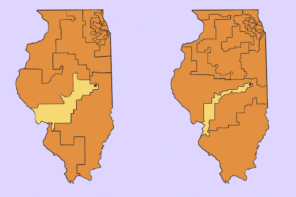It’s still legal for gay and lesbian people to be legally married in Washington, DC, thanks to a ruling by the DC Court of Appeals.* By a 5-4 vote, the nine judges determined that “the DC Board of Elections and Ethics acted lawfully when it rejected an initiative by opponents of gay marriage to have the matter voted upon in a referendum.”
That initiative, you’ll remember, was pushed by Bishop Harry Jackson, pastor of Hope Christian Church in Beltsville, Maryland, a virulent anti-gay crusader, who we have reported on before.
The ruling is interesting on both sides. The majority ruled that the question of whether or not to grant gays and lesbians marriage equality cannot be voted on by the population at large because such a vote would violate the District’s Human Rights Act. The majority wrote that the District Council:
was not obliged to allow initiatives that would have the effect of authorizing discrimination prohibited by the Human Rights Act to be put to voters, and then to repeal them, or to wait for them to be challenged as having been improper subjects of initiative, should they be approved by voters.
What’s interesting is that even the dissenting judges agreed that allowing the initiative could lead to discrimination. Instead, the minority “questioned whether the board was within its guidelines in rejecting Jackson’s initiative and whether they correctly interpreted D.C. law in making their decision.”
So, let’s be clear—both the minority and the majority agreed that putting the marriage rights of one group of people up for a vote by another group of people would lead to discrimination. The only bone of contention was whether the council had correctly interpreted DC law when they made their decision to legalize gay marriage last December.
Reaction from the religious right was typical—they don’t see a problem with the voting on other people’s rights, and judges who prohibit such a thing are “activist” judges. Wendy Wright, president of Concerned Women for America opined to One News Now:
“We’re extremely disappointed that the judges don’t understand this fundamental principle of our republic form of democracy: that it’s the people who ought to decide,” she argues. “As our founding fathers so clearly stated, it is ‘we the people’ who make up this country.”
The problem here seems to be Wright’s logic about “our republic form of democracy.” We don’t live in a “republic form of democracy,” we live in a republic. Now, if we lived in a democracy, then we’d all have the right to majority rules, where people could just vote willy-nilly on everybody else’s right to do this or that. But, we live in a republic, which is a representative form of government. The people elect representative bodies that are guided by laws and regulations—like the US Constitution. It seems Wright is confused in her definitions, as well as what right she and others should have to vote on the rights of another.
In this case, it appears that the District’s pesky Human Rights Act was what foiled the anti-marriage equality faction in this battle, but it has finally produced a ruling that recognizes that the rights of a minority should not be put up for a vote because such a vote inevitably leads to discrimination. That kind of voting practice is antithetical to how a republic works.
It should also be noted that the make-up of this “activist” bench is five George W. Bush appointees and four Bill Clinton appointees. The mix in the final tally, however, shows three Bush appointees and two Clinton appointees voted to preserve the rights of the minority, while the dissent was evenly divided between Bush and Clinton appointees. (It can also be noted that US District Judge Joseph Tauro, who recently ruled parts of the Defense of Marriage Act unconstitutional, is a Nixon appointee.)
So, in our republican form of government, Wright and others opposed to marriage equality for gays and lesbians do have the right to vote on these matters. They are free to elect officials who will appoint “activist” judges who agree with them—but, as this ruling (and others) shows, that’s not a foolproof plan.
*Originally indicated that it was the 9th Circuit Court. RD regrets the error.




